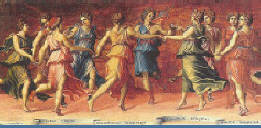Lost Love
A man has been untrue to his lover and been left by her as a consequence but he regrets his past
actions and wishes to re-tread the past in order to obviate his mistakes.
He wonders whether their love is still extant but concludes that time has irretrievably registered
his faults and he can only regret the deceits in the hope that the grains of sand may run again when
the glass is turned. Perhaps they will be re-united but he fears they may not, in which case, his
world will end.
Format is nine stanzas each of ten lines all of which are heavily rhymed.
No Harbour
No Harbour consists of eleven stanzas mostly of nine lines, rhymed EI, but the first two are of eight
lines, rhymed DH, and the last is of ten lines rhymed EJ.
Life is related in a shipping allegory where youthful confidence and strength of body triumphs over
all obstacles leading to ever greater achievements and success. Starting from modest beginnings, we
invest in new ventures where success leads on to international fame.
But success is followed by decline represented by the failing strength of an old steamer thrust
ashore by untiring waves that pursue mankind without remorse. We are swiftly consumed by the waves
and fame survives only briefly. The sea regains its placid appearance and lures others to venture
upon it where they play out their lives in a repeat of the experience.
The Days that Were
After many years, a man reflects upon his love for a girl long since parted and regrets the passage
of time that bars access to the past as if the days were imprisoned in an impregnable fortress.
He visits a scene where the lovers had spent a happy day and is transported in memory back to his
youth. The experience is short lived but he feels that he can revisit that life at any time. His
thoughts are still so vivid that he is convinced that Time can set no impediment to his recall but
will even assist his return to the scenes he had known.
Format is ten stanzas mostly of ten heavily rhymed lines.
Transfigured Day
This poem is indebted to Dehmel's Verklärte Nacht in that two lovers walk silently through a wood
troubled by some minor disagreement.
The autumn breeze sounds softly through the branches as if in a cathedral. The couple are witnessed,
not only by the rooks, but also by the falling leaves that, in tumbling through the air, entice the
lovers with their fluttering dance to join them as they are driven along the path to the strains
of music in the trees. The lovers are infected by their movement and regain their joyful mood
as they reach the edge of the wood and run across the field in pursuit of dancing leaves.
The analogy of the cathedral is reinforced by the rooks settling as a congregation to hear a sermon
from the owl upon the joys of reconciliation. The lovers, reunited in their happiness, hear the
wood resounding to the melody of the breeze through the trees as if it were a hymn in a cathedral.
Format is thirteen stanzas of either ten or eight lines irregularly rhymed.
Wind
A lover calls upon the wind to rise from distant oceans and to race across the seas in order to batter
entrance to castle strongholds, as well as to descend from mountains to fan the fires. It will,
thereby, carry his sighs to his now dead truelove in order that she may appear within his dreams
with memories of scenes they knew before.
He thanks the wind and forgives its blast. He asks the wind to carry love to all the corners of the
world because it has the ability to resolve despair even in the slightest breeze as well as in its
greatest rage. He concludes that love will have whispered comfort to all who are now parted because
the wind has power to lift their souls from grief.
Format is eight stanzas each of eleven lines except the last which is of twelve lines; and is heavily
rhymed throughout.
|
